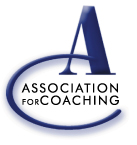Twenty tips for getting ahead in 2020
The start of a new year is a time to make decisions, think about career and ambitions, and how to attain a greater quality of life for the coming year. In 2020 you may wish to take a longer term view, across the new decade.
For many people this is where it stops, at the thinking stage. According to Forbes, come February less than 25% are pursuing their resolutions and less than 8% achieve them in the longer term.
So how can you buck this trend and get to where you want to be?
Make decisions, set new goals
The more imprecise your vision of your future, the less likely you are to get ahead. If you aren’t specific enough, how can you design a strategy to achieve your wishes? You will surely miss the mark! If asked to manage a project at work, you will likely plan it step by detailed step. Yet does this happen with your goals?
Top Tips
1. Don’t simply make broad resolutions, such as to travel, acquire new skills, get a new job or have more of a work-life balance; be more precise, so that you hit your target.
2. Brainstorm as many small steps as you can think of to take you to your precise goal & estimate how long each step will take.
3. Place them in priority order.
4. Decide the date to reach your goal and schedule it on your planner, along with the dates you’ll take the steps to get there – schedule them in too.
5. Ensure your steps to reach your goals are on today’s To Do List.
Career ambition and change: three key tools to develop
It’s a great time to think about moving forward, and I find clients tend to seek pastures new at this time. Applying for a new job, an upward move or even changing career direction, takes lots of planning and sheer hard work – this often alongside an existing busy role.
Your CV – the story of your life
Your CV is not only a vital tool in getting noticed by recruiters and HR from among the hundreds they see online or on their desk, it is also a great way to review your professional journey and achievements to date, to remind yourself of your skills and determine what further skills to acquire. Has it been a planned journey or a series of random roles, or jobs for jobs’ sake or roles that fit with your passions and values?
Top Tips
1. Get your CV noticed! Use a clean, clear layout, one that is also visibly interesting and different.
2. Check it’s easy to read, a large enough font, and a confident one like Arial, with wide margins.
3. Ensure it’s accurate – spelling, grammar and facts – one mistake will cast doubts on the rest.
4. Start strongly, with a memorable summary in your profile and notable achievements in your key skills and achievements sections, relevant also to the role. An excellent start will encourage the reader to read on.
5. Ideally show your planned career progression within your CV.
You’ve got an interview
How often clients tell me they dislike interviews. Some say they freeze at the thought and put off preparing. Yet procrastination can only increase the nerves.
Top tips
1. Start preparing before you even have an interview; it will feel less pressured and give you time to look back and draw out your best stories.
2. Make a list of the best stories you can tell about your professional experience, and note which competency each story illustrates. You will then have these at your fingertips for when you need them.
3. Practise aloud: become a great story teller of your competencies using STAR (situation, task, action, result). Make your listeners hang on to your every word!
4. Once you have a specific job to apply for, research the organisation, work out likely questions from the job spec and prepare to answer them.
5. Consider what questions to ask them at the end of your interview.
Clinch that presentation
At a certain level, or with some roles, you’re likely to be asked to give a presentation. Do you love it? Or are you one of the high percentage of people whose knees knock at the thought? Here are some tips to succeed.
Top tips
1. Prepare early, so you have time to gather your thoughts and content and carry out research; set out your objectives and shape the content to meet them.
2. Use informative and interesting variety; engage your listeners with challenges, successes, visuals and rhetorical questions, appropriate to the role and the task you’ve been set. Demonstrate your knowledge, skills and vision through what you say.
3. Use visuals such as PowerPoint to enhance what you say, not to say it all. Then you don’t need to be there!
4. Practise and time it. If you overrun, they may stop you mid-sentence!
5. Have a strong opening and a strong ending. Know your opening lines well; fluency at the start shows confidence and is more likely to be sustained; call your listeners to action at the end of your presentation to meet the objectives you set at the start.
Would you like to take a new direction, either personally or professionally? Life coaching can help you to achieve positive change.
To find out more or to arrange an appointment, please contact me.


